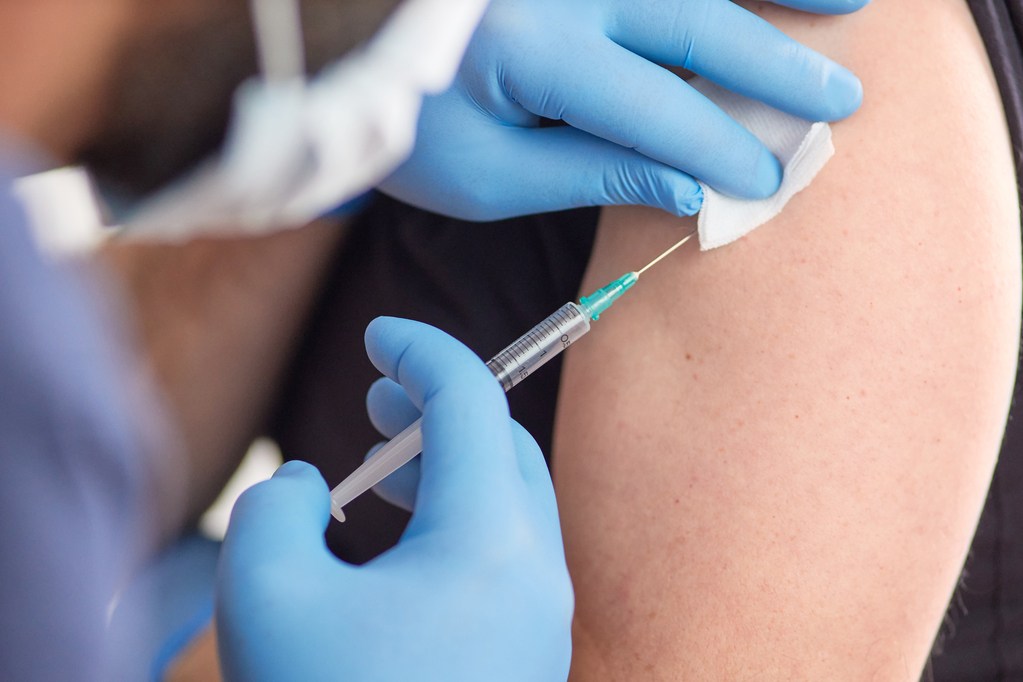The European Centre for Disease Prevention and Control (ECDC) warned in a new risk assessment on Wednesday that the probability of the spread of the Omicron variant in the EU is very high.
The previous assessment on 24 November, just before the outbreak of the new COVID-19 variant in Europe, warned that there was a risk of a very high COVID-19 burden this Winter unless public health measures are applied urgently. The new assessment is informed by the latest evidence on Omicron epidemiology, transmissibility, severity, and immune escape.
“Since I last addressed you, the emergence of the Omicron variant has raised serious concerns due to preliminary reports of clusters of cases, including among people who had been fully vaccinated,” said ECDC Director Andrea Ammon (15 December).
“There are indications that community transmission is already ongoing in EU/EEA countries and based on modelling predictions a further rapid increase in Omicron cases is imminent. We assess the probability of further spread of the Omicron variant in the EU/EEA as very high, and it is considered very likely to cause additional hospitalisations and fatalities, further to those already expected from previous forecasts that consider only the Delta variant.”
The Delta variant remains currently the most prevalent variant. However, the Omicron variant is likely to become the dominant variant in the EU/EEA within the first two months of 2022.
However, the effectiveness of vaccines against severe outcomes caused by Delta remains high, he added. “Therefore, vaccination remains a key component in reducing the impact of Omicron and addressing the circulation of Delta.” As of 9 December 2021, the cumulative full COVID-19 vaccine uptake in the total population of the EU/EEA is 66.8%.
ECDC writes that early evidence from in vitro neutralisation studies, not yet peer-reviewed, shows a reduced neutralisation capacity of sera (serum antibody levels) from vaccine recipients and convalescent sera against Omicron compared to other variants, although large uncertainties persist.
In addition, there is still insufficient real-life data on the effectiveness of the vaccines authorised in the EU against Omicron. According to the evidence currently available, for severe outcomes caused by the Delta and potentially the Omicron variant, booster doses will increase protection, with the population impact expected to be higher if the booster dose is given to most of the adult population within a short interval.
According to surveillance data, nearly half a million lives have been saved by vaccines so far. Countries should ramp up efforts to increase full vaccination in people not yet vaccinated or only partially vaccinated, as well as to administer booster doses to all eligible as soon as possible.
This comes with a caveat. “In the current situation, vaccination alone will not allow us to prevent the impact of the Omicron variant, because there will be no time to address the vaccination gaps that still exist. It is urgent that strong action is taken to reduce transmission and alleviate the heavy burden on health care systems and protect the most vulnerable in the coming months.”
Countries have several options for response ahead of the festive season in the current situation. ”A rapid reintroduction and strengthening of non-pharmaceutical interventions is necessary to reduce the ongoing Delta transmission, slow down the spread of the Omicron variant of concern and keep the COVID-19-related burden manageable.
ECDC underlines that it remains a priority to use face masks appropriately, telework, prevent crowding in public spaces, reduce crowding on public transport, stay home when ill, maintain hand and respiratory hygiene measures and ensure adequate ventilation in closed spaces. “Countries may expect a strong resurgence of cases if they lift these interventions.”
In the previous assessment, the ECDC Director pointed to the correlation between contact rates and vaccination coverage. Effective contact reduction is crucial for reducing the risk of an unprecedented high COVID-19 burden in the next months.
The ECDC explained to The Brussels Times that two people are in “contact” if they are close enough such that an infection could occur from one person to the other. However, behaviour is extremely difficult to measure and to predict.
While the exact definition of a contact varies, ECDC’s message of “reducing contact rates” means that encounters among people must decrease, leading to a reduction in the effective reproduction number (Rt).
For probable or confirmed cases of Omicron infection, contact tracing should be prioritised, regardless of vaccination status, according to ECDC. Testing remains an important tool, and people with symptoms should be tested regardless of their vaccination status, together with isolation of positive persons, to limit the spread of the virus and to reduce the burden on healthcare systems.
Genomic surveillance remains of high importance and genome sequencing should be performed to confirm infection with a specific variant.
“These measures will not only help keep us healthy but will also protect those around us. By acting together, we can overcome the difficult situation that the pandemic has caused. As the festive season comes closer, we need solidarity more than ever before.”
The Brussels Times

